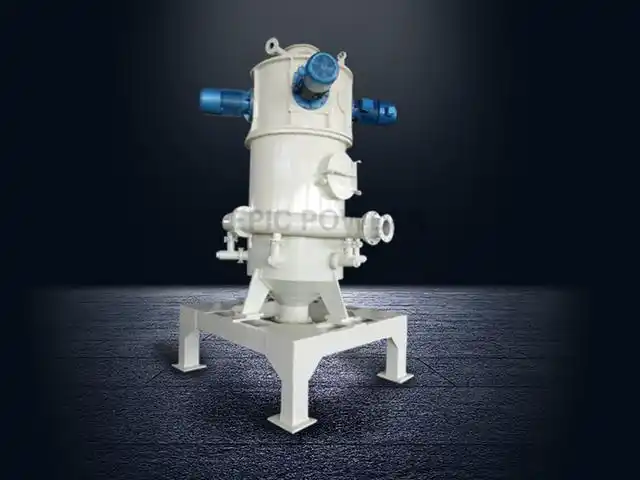Nitrogen Protection air jet mill, also known as the Nitrogen Protection Environment Ultrafine Pulverizer, is a high-tech pulverizing device. It uses nitrogen as a protective gas and pulverizes the material through the action of high-speed rotating blades and airflow. It can achieve the effect of preparing ultrafine powder. Therefore, this kind of air jet mill can preserve the material’s inherent characteristics. It can also prevent the influence of oxygen and moisture in the air on the material.

Features of the Nitrogen Protection air jet mill:
Efficient Pulverization: The nitrogen protection air jet mill can quickly reduce various materials to ultrafine powders. It’s through the combined action of high-speed rotating blades and airflow, offering efficient pulverization performance.
Effective Protection: Using nitrogen as a protective gas, the nitrogen protection air jet mill effectively safeguards the material during the pulverization process, preventing the impact of oxygen and moisture and ensuring the material’s quality.
Wide Applicability: The nitrogen protection air jet mill is suitable for a wide range of materials with varying hardness, including but not limited to ores, chemical raw materials, food products, pharmaceuticals, and more.
Adjustable Particle Size: The nitrogen protection air jet mill allows for precise control of particle size by adjusting parameters such as inlet and outlet gas pressure, nozzle angle, and blade speed, making it adaptable to customer requirements.
Environmental Protection and Energy Saving: By using nitrogen as the protective gas, the nitrogen protection air jet mill prevents the impact of oxygen and moisture on the material. It also reduces energy consumption and dust emissions during production at the same time. This makes it an environmentally friendly and energy-efficient option.
Application Industries of the Nitrogen-Protected air jet mill
Nitrogen-protected air jet mills are widely used in various industries, including mining, building materials, metallurgy, chemicals, food, pharmaceuticals, and more. In the chemical industry, nitrogen-protected air jet mills are used to prepare high-quality dyes, pigments, coatings, plastics, and other products. In the food industry, they are used to prepare condiments, animal feed, Chinese medicinal herbs, and other products.
Special Requirements for Nitrogen-Protected air jet mills
Since nitrogen-protected air jet mills use nitrogen as a protective gas, the following points should be considered during their operation:
Safety Considerations: Nitrogen is colorless, odorless, and non-toxic. However, if the gas leaks, it can be harmful to human health. Therefore, when using a nitrogen-protected air jet mill, safety measures must be in place to prevent nitrogen leakage and ensure the safe operation of the equipment.
Nitrogen Cost Considerations: As nitrogen is a high-purity gas, large quantities are consumed during operation, which can increase production costs. When using a nitrogen-protected air jet mill, it’s essential to evaluate the cost-benefit relationship and select the most suitable operating method to optimize efficiency and minimize expenses.
Maintenance Considerations: Nitrogen-protected air jet mills are technically sophisticated and have complex structures. Regular maintenance and cleaning are crucial to ensure the equipment runs smoothly. Additionally, any faults should be addressed promptly to maintain normal operation.
Conclusion
In conclusion, nitrogen-protected air jet mills offer several advantages, including high efficiency, environmental protection, and adjustable particle size. They are widely used in the chemical, food, and pharmaceutical industries. However, users must address specific requirements, such as nitrogen safety, nitrogen costs, and regular equipment maintenance, to ensure optimal performance and safety.